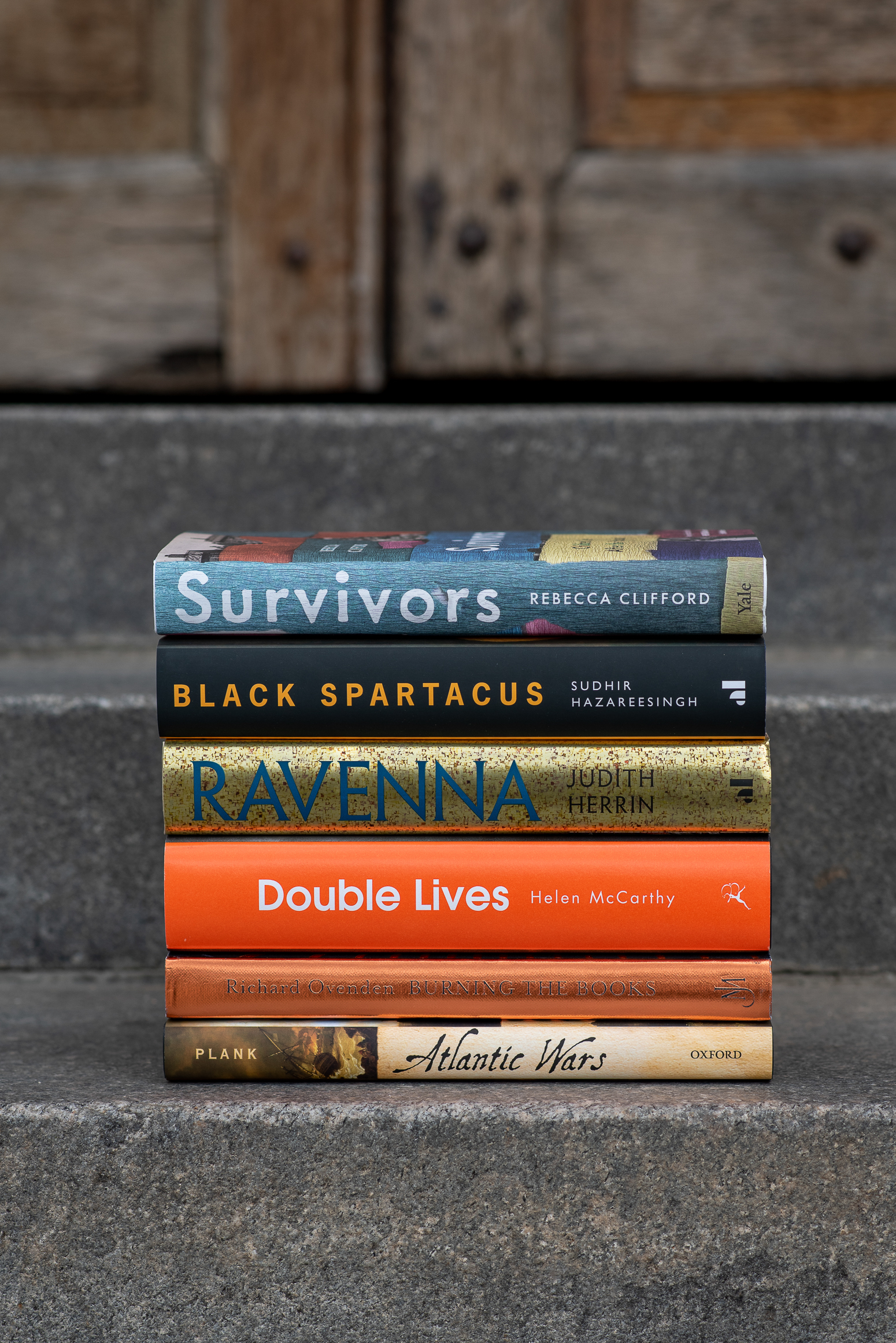
The Brief
First awarded by the Wolfson Foundation in 1972, the Wolfson History Prize remains a beacon of the best historical writing being produced in the UK, reflecting qualities of both readability for a general audience and excellence in writing and research. The most valuable non-fiction writing prize in the UK, the Wolfson History Prize is awarded annually, with the winner receiving £40,000, and the shortlisted authors receiving £4,000 each. Over £1.3 million has been awarded to more than 100 historians in the prize’s 49-year history. Previous winners include Mary Beard, Simon Schama, Eric J. Hobsbawm, Amanda Vickery, Antony Beevor, Mary Fulbrooke, and Antonia Fraser.
Building on the past two years’ campaigns, Midas worked with the Wolfson Foundation to continue raising the profile of the Wolfson History Prize among both new audiences and those already familiar with the Prize. The campaign spanned PR, social media, retail, stakeholder outreach, and forging new partnerships.
The Work
As the pandemic continued, the media landscape and agenda changed significantly, with fatigue around prizes and digital events becoming stronger than ever. With this in mind, Midas delivered a creative and integrated audience-led campaign to build awareness of the prize among new and existing audiences across the UK while exploring the potential of new and digital media. The campaign centred on three key moments: prize dates, shortlist, and winner announcements.
The media campaign was segmented to highlight each of the shortlisted authors, with a bespoke PR and social media campaign on each shortlisted book in order to deliver maximum exposure.
Midas built on previous years’ activity by developing strong relationships with the history specialist media, building the profile of the Wolfson Foundation CEO, Paul Ramsbottom and securing widespread coverage for the Prize announcements across the board.
The Results
Midas secured 142 pieces of coverage for the 2021 prize, with a total media reach of over 93,768,000 potential readers, over 10 million more than the previous year’s campaign.
Midas secured 75 pieces of coverage at shortlist stage, and 53 pieces for the winner announcement. Media highlights included: the i, The Times, MSN News, LBC Radio, BBC Radio 3 Free Thinking, BBC History Extra Podcast, BBC History Magazine, All About History, Evening Standard, BBC Radio London, BBC Radio Cambridge, The Bookseller, Publishing Perspectives, Five Books, and The Spectator Book Club.
Social media and digital engagement with key influencers, retailers, institutions and media included:
Securing 4,300 followers by July 2021, exceeding the KPI target.
The shortlist main announcement tweet got 253 retweets (27% increase), 367 likes (62% increase), 492.852k impressions (500% increase). The hashtag during the shortlist campaign had a potential reach of 3.6million and got 5.7milliion potential impressions.
Midas organised a giveaway of the shortlisted books with a publishing influencer which got 432 retweets and 379 likes.
The winner main announcement 382 retweets (26% increase), 761 likes (58% increase) and 651,308 impressions (294% increase). The hashtag during the winner campaign had a potential reach of 6.7milion.
The blog tour for the shortlisted titles, reached over 66,000 people – a 14% increase on the previous year. This helped build momentum ahead of the winner announcement, with the bloggers helping promote the virtual ceremony.
The Prize announcements were supported across social media by key figures included Simon Schama, Mary Beard, David Olusoga, Philip Pullman, Kate Williams, and William Dalrymple as well as numerous journalists and influencers such as the TLS, London Review of Books, the Sunday Times literary editor Andrew Holgate, Simon Mayo, History Today and BBC R3 Free Thinking.
Midas worked closely with retailers including Waterstones, Foyles, Bookshop.org and Blackwell’s to ensure support for the Prize across their social channels, customer communications and in-store. A partnership with the Reading Agency was also secured to promote the Prize and shortlisted titles in libraries around the UK.
Support was garnered from numerous institutions and organisations including Swansea University, University of Oxford, the Oxford Centre for Intellectual History, University of Cambridge, Durham University, The British Academy, and the Royal History Society.
“We’re always impressed with the Wolfson History Prize shortlist when it comes around each year and the 2021 contenders are as admirable as ever.”
All About History